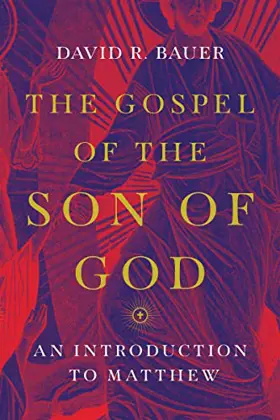

The Gospel of the Son of God: An Introduction to Matthew
Pages
392
Publisher
IVP Academic
Published
11/19/2019
ISBN-13
9780830852321
From beginning to end, the very structure of the Gospel of Matthew emphasizes that Jesus is the Son of God. At climactic points Jesus is so identified―by Peter, by a Roman centurion, by Jesus himself, and by God the Father. With The Gospel of the Son of God, David Bauer provides a comprehensive introduction to this Gospel that has been so foundational to the Christian church. Arguing that the nature of Matthew itself should provide us with the framework for its study, he presents a holistic inductive approach with a literary, theological, and canonical focus. In the first section on orientation, Bauer explores issues of genre, interpretive methods, authorship, audience, and literary structure. Then he moves to interpretation, guiding readers through the meaning of sections of the text. Finally, the reflection section synthesizes and develops major theological themes emerging from the interpretation, including Christology, salvation history, eschatology, and discipleship. While providing a sound basis for the study of Matthew, Bauer goes beyond typical introductory issues to draw out the rich theological vision of the Gospel. His careful scholarship and clear exposition will make this a valuable resource for college and seminary students and pastors.
Reviews
Bauer’s work is focused on the theology (especially the Christology) that is generated by the narratival structure, concerns, and characters of Matthew’s Gospel. It is a work that self-consciously identifies as a form of narrative criticism, and is a literary-theological commentary on Matthew’s Gospel (40-41). The fundamental idea is that it studies Matthew inductively, and hence is driven by those concerns that he believes are intrinsic to the document itself (41). To this reviewer’s mind, the work is a success, and it serves as an excellent commentary as well as introduction to the theological interpretation of Scripture.
[Full Review]
